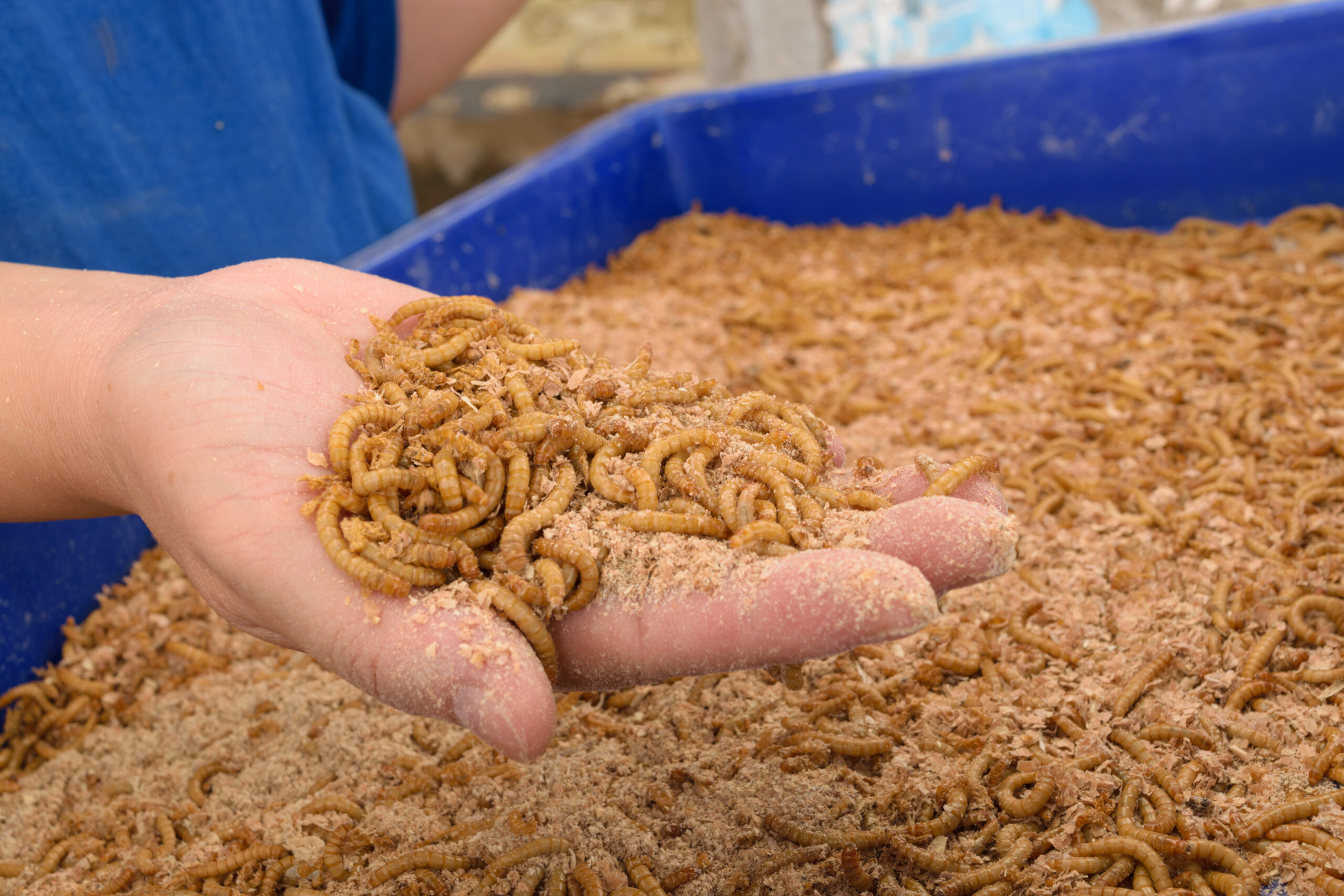By Lynda Kiernan-Stone, Global AgInvesting Media
The ecological well being of the planet, and the agricultural sector tasked with feeding its growing population are under more strain than ever. But this intense pressure is regrettably pushing agriculture to be an ever greater driver of climate change.
Agriculture is the leading driver of land use shifts – such as deforestation. And if left to continue without meaningful innovation, greenhouse gas emissions could increase by 58 percent by 2050, according to the World Resources Institute.
One meaningful solution is being found in insect farming and insect-based proteins – a more sustainable feed source that can be processed into components for aquaculture, livestock, and pet feeds using significantly less land, energy, water, and resources than conventional row crop or animal protein production, while also producing significantly reduced greenhouse gasses, reducing food waste, and protecting our oceans.
Moreover, insect farming can contribute to the circular economy by using organic waste materials such as food scraps or crop residues as insect feed. Additionally, insect-based proteins are a reliable and nutritious food source that is not dependent on weather conditions or crop yields, and are a sustainable and affordable source of nutrition for people in developing countries, where traditional animal protein sources may be scarce or expensive.
As the demand for sustainable and alternative protein sources continues to grow, the insect farming industry has the potential to become a multi-billion-dollar market. Furthermore, the low production costs and high feed conversion rates of insect farming can make it a profitable business for entrepreneurs and investors.
One pioneer bringing all of these benefits to bear is France-based Ÿnsect. Founded in 2011 by Antione Hubert, Alexis Angot, Fabrice Berro, and Jean Gabriel Levon, Ÿnsect is working to create a sustainable food system, and to meet growing global demand for protein through tapping into insect protein at a mass-market scale.
Having closed in October 2020 on a Series C that gained the company $372 million, Ÿnsect has shared with GAI News that it has recently raised the first $177 million of its new Series D, adding that the investors participating in the round will be announced once the series is completed.
Between these two developments, Ÿnsect has been busy, signing two partnership agreements last year with local industrial partners Ardent Mills the U.S., and Corporativo Kosmo in Mexico to explore the possibility of building vertical insect farms on the local level, addressing the potential in the pet food, plant, and human food markets for premium, healthy, and sustainable insect-based ingredients.
The company also has achieved industrial scale for its its B2B2C business model – an affirmation for its dual, complementary strategic pillars:
~ The first is to service the approximately $175 million in signed contracts and approximately $1 billion in customer contracts under negotiation. Ÿnsect explained that achieving this renewed strategic focus centers upon its Ÿnfarm facility in Amiens, France, which received its first insects at the end of October 2022 for the start of its first production cycles. Once at full capacity, Ÿnfarm is expected to deliver up to 120,000 tons of product, ensuring the company’s leadership position in the insect-based (food) ingredients industry.
~ The second is a clear focus on moving past lower-margin animal feed ingredients into the development of high-value-added products such as human food, pet food, bird food, and plant care products. Toward this end, the company intends to further pursue an asset-light approach through global joint ventures and licensing agreements.
Reflective of this strategy in action, Ÿnsect has just announced a newly signed Memorandum of Understanding (MOU) with the LOTTE R&D center – an agtech leader in Korea that will expand Ÿnsect’s activity in Asia with three goals:
~ To conduct joint research into the development of insect-based food products
~ To work together to increase knowledge of the health benefits of edible insects.
~ And to conduct and share surveys on “insects in human food” among consumers in Europe and South Korea.
“The signing of this MOU with the LOTTE R&D center, the Korean leader, is a major step forward in Ynsect’s development,” said Guillaume Daoulas, food & plant sales director, Ÿnsect. “We aim to accelerate our presence in high value-added markets, with natural, healthy and sustainable ingredients. Through LOTTE R&D center, we now benefit from the support of a key player to better understand the different markets in which we are establishing ourselves across the Asian continent and thus be able to meet the demand for local proteins.”
Having achieved industrial scale, begun fundraising again, and streamlined its vision and business model while forging new, key partnerships, Ÿnsect is well-positioned to meet its goal of building a dozen vertical farming operations around the world by 2030.
~ Lynda Kiernan-Stone is editor in chief with GAI Media, and is managing editor and daily contributor for Global AgInvesting’s AgInvesting Weekly News and Agtech Intel News, as well as HighQuest Group’s Unconventional Ag. She can be reached at lkiernan-stone@globalaginvesting.com.
*The content put forth by Global AgInvesting News and its parent company HighQuest Partners is intended to be used and must be used for informational purposes only. All information or other material herein is not to be construed as legal, tax, investment, financial, or other advice. Global AgInvesting and HighQuest Partners are not a fiduciary in any manner, and the reader assumes the sole responsibility of evaluating the merits and risks associated with the use of any information or other content on this site.

